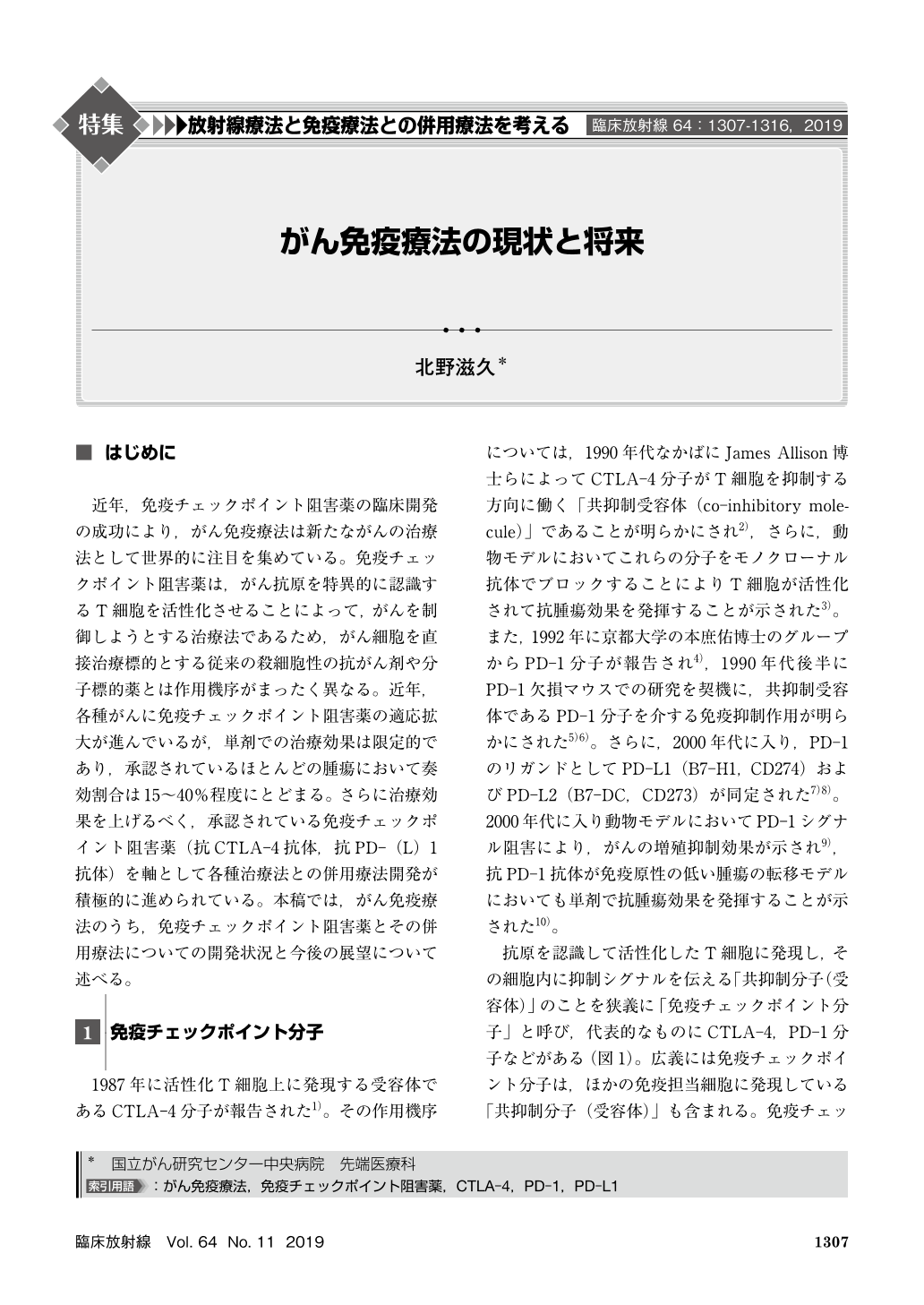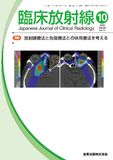Japanese
English
- 有料閲覧
- Abstract 文献概要
- 1ページ目 Look Inside
- 参考文献 Reference
近年,免疫チェックポイント阻害薬の臨床開発の成功により,がん免疫療法は新たながんの治療法として世界的に注目を集めている。免疫チェックポイント阻害薬は,がん抗原を特異的に認識するT細胞を活性化させることによって,がんを制御しようとする治療法であるため,がん細胞を直接治療標的とする従来の殺細胞性の抗がん剤や分子標的薬とは作用機序がまったく異なる。近年,各種がんに免疫チェックポイント阻害薬の適応拡大が進んでいるが,単剤での治療効果は限定的であり,承認されているほとんどの腫瘍において奏効割合は15~40%程度にとどまる。さらに治療効果を上げるべく,承認されている免疫チェックポイント阻害薬(抗CTLA-4抗体,抗PD-(L)1抗体)を軸として各種治療法との併用療法開発が積極的に進められている。本稿では,がん免疫療法のうち,免疫チェックポイント阻害薬とその併用療法についての開発状況と今後の展望について述べる。
Recent progress in cancer immunotherapy has been remarkable, especially the clinical development of immune checkpoint inhibitors, such as anti-CTLA-4 and anti-PD-1 antibodies. These monoclonal antibodies(mAb)are directed to immune checkpoint molecules, which are expressed on immune cells and mediate signals to attenuate excessive immune reactions. Main mode of action of immune checkpoint inhibitors is to restore and augment the antitumor immune activities of cytotoxic T cells by blocking immune checkpoint molecules on T cells or their ligands on antigen presenting and tumor cells, etc. Based on preclinical data, some clinical trials have demonstrated the acceptable safety profiles and efficacies of immune checkpoint inhibitors in a variety of cancers. Several clinical trials have since investigated new agents, alone and in combination, for various cancers. In this review, the current development status of and future challenges in utilizing immune checkpoint inhibitors are introduced.

Copyright © 2019, KANEHARA SHUPPAN Co.LTD. All rights reserved.


